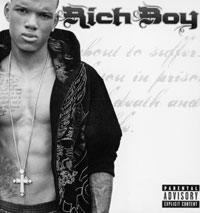By Mark Bauer/se news editor
College Democrats and College Republicans on campuses across the U.S. might spur blind partisanship, but they also inspire political involvement on the collegiate level.
So is being involved in a campus political group a good thing? Here are a few points to consider when thinking about joining a political group:
The Good
Political factions such as these are nothing new. They have been around since the time of George Washington’s presidency. But despite the mud slinging that occurs between political parties, their existence may actually be a good thing.
“ Politics means power,” Terri Schrantz, associate professor of sociology and psychology, said. “And while political parties vie for their share and often create conflict, it is beneficial to have opposition so that power is not concentrated to the point of dominance and abuse.”
The Bad
One of the most aggravating aspects of a multi-party system is not the disagreements, Dr. Catherine Bottrell, associate professor of government and sponsor of the College Democrats group on SE Campus, said. It is not even the mud slinging or the name calling.
What bothers her most is the appropriation of issues.
For example, because global warming is an issue often associated with Democrats, Republicans may easily dismiss it as just another liberal issue.
However, the state of the planet and its potential demise, if there is any, Bottrell said, should not be an issue associated with any particular political party. The climate change and its effect on humans is not a liberal or conservative issue, it is a people issue.
“ People will always be split on these issues,” she said. “As long as the parties make them the only issues in their campaigns, other areas that need attention suffer.”
The Ugly
Disagreements are void without voter involvement. The under-30 voter range is traditionally the most complacent of any other.
Even though AP and Gallup polls indicate a slight shift in voter turnout, revealing that 18-20-somethings had the highest turnout in 2004 since 1992, the turnout is still low for this age group.
Part of the spike in the under-30 turnout may be credited to campaigns such as MTV’s Rock the Vote, wherein celebrities like Sean Combs attempted to generate mass voter registrations.
But Bottrell said that in order to really increase voter turnout, young people have to understand how who is on the Supreme Court really impacts their life.
“ Make politics connect to their 20-something reality,” she said. “If young people would vote, politicians would have to cater to their issues—affordable education, the cost of textbooks, etc.”
The Uninformed
Once young adults decide to exercise their right to vote, it is necessary that they research an individual candidate’s stance on issues; not just the party’s platform.
“ Just because someone claims to be a Democrat or Republican doesn’t mean that they are,” Bottrell said.
“ Giuliani is running as a Republican but is pro-choice.”
With freedom comes responsibility, she said. “Don’t blindly follow a candidate because of a label,” she said.
The Advice
Bottrell said political groups only perpetuate blind partisanship if they are allowed to.
“ I try to steer students away from Bush bashing,” she said.
“ If you don’t like an issue, discuss the issue, not the person. Being smug about being right gets you nowhere,” Bottrell said.
John Perkins, SE associate professor of history, would agree.
“ I think having college groups like these are a positive,” he said. “We just need to respect others’ opinions, even if we disagree.”
But party should not matter.
“ I don’t think either party has a monopoly on all the good ideas or the good candidates,” he said. “To think that they do is ignorant.”

























